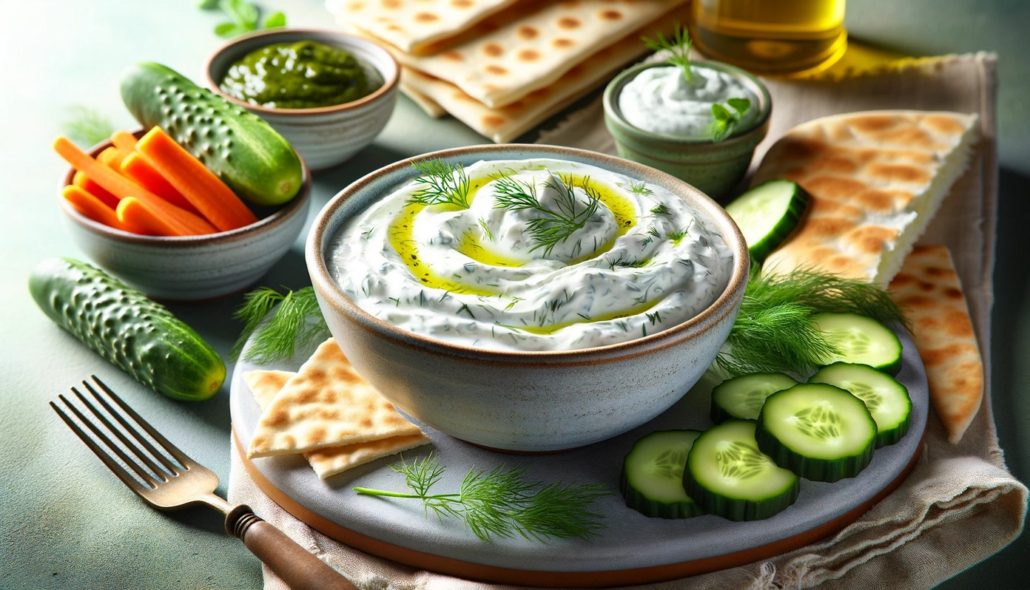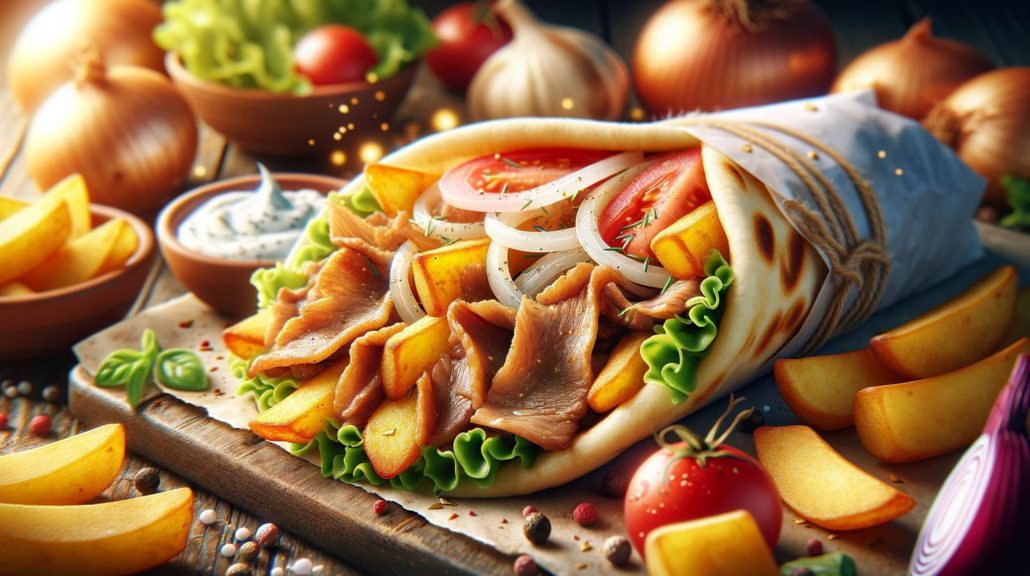Culinary Delights: A Foodie’s Tour of Greek Cuisine
Introduction to Greek Cuisine
Greek cuisine, a treasure trove of flavors and traditions, has been shaping palates for centuries. Its roots delve deep into history, intertwining with the stories of the Mediterranean. The Greek table is known for its variety, freshness, and a generous drizzle of olive oil. This introductory section will shed light on the historical evolution of Greek cuisine and its defining characteristics that make it a global favorite.
The Healthy And Original Greek Salad
The Rich History of Greek Culinary Traditions
Delving into the annals of history, Greek cuisine presents a tapestry rich with influences from various civilizations. This part of the article will explore the historical journey of Greek culinary practices, from ancient times to the present, highlighting how historical events have shaped Greek food traditions.
Influences and Characteristics
Greek cuisine is a melting pot of diverse influences – from the spices of the East to the culinary practices of the Mediterranean. This subsection will dissect the unique characteristics of Greek food, focusing on its reliance on fresh ingredients, simple cooking methods, and the prominent role of herbs and spices.
Traditional Greek Dishes
Greek food is synonymous with flavor and simplicity. This section will delve into some of the most iconic and traditional Greek dishes, unraveling their history and cultural significance.
Moussaka: A Layered Eggplant and Meat Delight
Moussaka, a quintessential Greek dish, is a hearty, layered casserole that combines eggplants, minced meat, and a creamy béchamel sauce. This subsection will offer an insight into the origins of Moussaka, its regional variations, and its place in Greek family meals and celebrations.
Souvlaki: The Greek Answer to Fast Food
Souvlaki, a popular street food, epitomizes Greek culinary ingenuity. This part will explore the history of Souvlaki, its preparation, and why it is considered the go-to fast food in Greece.
Tzatziki: A Refreshing Yogurt Dip
Tzatziki, a staple in Greek cuisine, is a refreshing yogurt-based dip known for its versatility. This subsection will delve into the simplicity of Tzatziki’s preparation, its various uses in Greek meals, and the secret behind its delightful taste.
Greek Seafood Specialties
Given Greece’s extensive coastline, seafood forms an integral part of its cuisine. This section will highlight some of the most beloved seafood dishes, showcasing the country’s rich maritime heritage.
Grilled Octopus: A Seafood Staple
Grilled octopus is a testament to Greek simplicity in cooking. This part will discuss how this seafood staple is prepared and enjoyed, highlighting its significance in Greek culinary culture.
Saganaki: The Famous Greek Cheese Dish
Saganaki, although not a seafood dish, often accompanies seafood in Greek cuisine. This subsection will explain what Saganaki is, its preparation, and its role in the Greek dining experience.
Seafood Varieties in Greek Diet
This part will provide an overview of the different types of seafood commonly used in Greek cooking, emphasizing the importance of freshness and local sourcing in Greek culinary practices.
Greek Street Food: A Journey of Taste
Street food in Greece is not just about quick bites; it’s a cultural experience. This section will explore some of the most popular Greek street foods, their history, and what makes them so beloved.
Gyros: The Pita Bread Sensation
Gyros, a staple in Greek street food, offers a symphony of flavors wrapped in pita bread. This subsection will delve into the history of Gyros, its preparation, and its status as a beloved quick meal in Greece.
Loukoumades: A Sweet Treat
Loukoumades are the Greek answer to donuts – small, honey-soaked delights. This part will explore the origins of Loukoumades, how they are made, and their role in Greek confectionery.
Spanakopita: The Savory Spinach Pie
Spanakopita, a savory pie filled with spinach and feta cheese, is a testament to the simplicity and heartiness of Greek cuisine. This subsection will discuss the origins of Spanakopita, its variations, and its presence in Greek daily life.
Greek Desserts: A Sweet Finale
No culinary tour of Greece would be complete without mentioning its delectable desserts. This section will introduce some of the most popular Greek desserts, unraveling the stories behind their sweet allure.
Baklava: Layers of Sweetness
Baklava, a rich, sweet pastry made of layers of filo, is filled with chopped nuts and sweetened with syrup or honey. This subsection will delve into the history of Baklava, its preparation, and its status as a beloved Greek dessert.
Galaktoboureko: A Custard Phyllo Masterpiece
Galaktoboureko, a custard-filled phyllo pastry, is a Greek dessert that combines the creaminess of custard with the crispness of phyllo. This part will explore the origins and preparation of this delectable dessert.
Rizogalo: Greek Rice Pudding
Rizogalo, a simple yet comforting rice pudding, is a staple in Greek households. This subsection will discuss the simplicity of its ingredients, its comforting nature, and how it is enjoyed across Greece.
Greek Wines and Beverages
Greek beverages, particularly its wines and spirits, are as diverse as its cuisine. This section will take a closer look at some of the most famous Greek beverages, their history, and their place in Greek culture.
Ouzo: The Iconic Greek Spirit
Ouzo, an anise-flavored spirit, is arguably the most famous Greek alcoholic beverage. This part will explore the origins of Ouzo, its production process, and how it is traditionally enjoyed in Greece.
Greek Wines: A Hidden Treasure
Greek wines, though less known globally, have a history as rich as the country itself. This subsection will delve into the varieties of Greek wines, their unique characteristics, and the growing recognition of Greek vineyards in the world of wine.
Greek Coffee: A Cultural Experience
Greek coffee, known for its strong flavor and unique preparation, is much more than a morning beverage; it’s a ritual. This part will discuss the traditional way of preparing Greek coffee and its significance in daily Greek life.
Regional Variations in Greek Cuisine
Greece’s diverse geography leads to a variety of regional culinary traditions. This section will explore the distinct flavors and dishes unique to different regions of Greece.
Crete: A Culinary Haven
Crete, the largest of the Greek islands, boasts a unique culinary heritage. This subsection will delve into Cretan cuisine, its emphasis on fresh and local ingredients, and some of the island’s signature dishes.
Aegean Islands: Unique Flavors and Ingredients
The Aegean Islands, with their distinct culinary traditions, offer a plethora of unique flavors. This part will explore the island-specific dishes and ingredients that set the Aegean Islands apart in the Greek culinary landscape.
Thessaloniki: The Culinary Capital
Thessaloniki, often referred to as Greece’s culinary capital, is renowned for its diverse food scene. This subsection will highlight the city’s culinary specialties and the reasons behind its reputation as a food lover’s paradise.
Greek Cuisine in Modern Times
Greek cuisine has evolved while maintaining its traditional essence. This section will examine how Greek food has adapted to modern tastes and trends, and its influence on global cuisine.
The Fusion of Tradition and Modernity
This part will discuss the ongoing fusion of traditional Greek cooking with contemporary culinary techniques, highlighting how chefs are reinventing classic dishes while preserving their essence.
Greek Cuisine’s Influence Worldwide
The influence of Greek cuisine extends far beyond its borders. This subsection will explore the global popularity of Greek food, its incorporation into different culinary cultures, and the rise of Greek restaurants worldwide.
Sustainability and Organic Trends in Greek Food
Sustainability and organic farming have become significant trends in global cuisine, and Greek cooking is no exception. This part will delve into the growing trend of organic and sustainable practices in Greek food production and how it is shaping the future of Greek cuisine.
The Everlasting Appeal of Greek Food
Greek cuisine, with its rich flavors, fresh ingredients, and deep-rooted traditions, continues to captivate food lovers around the world. This conclusion will summarize the enduring appeal of Greek food, reflecting on its timeless charm and its role in bringing people together.














